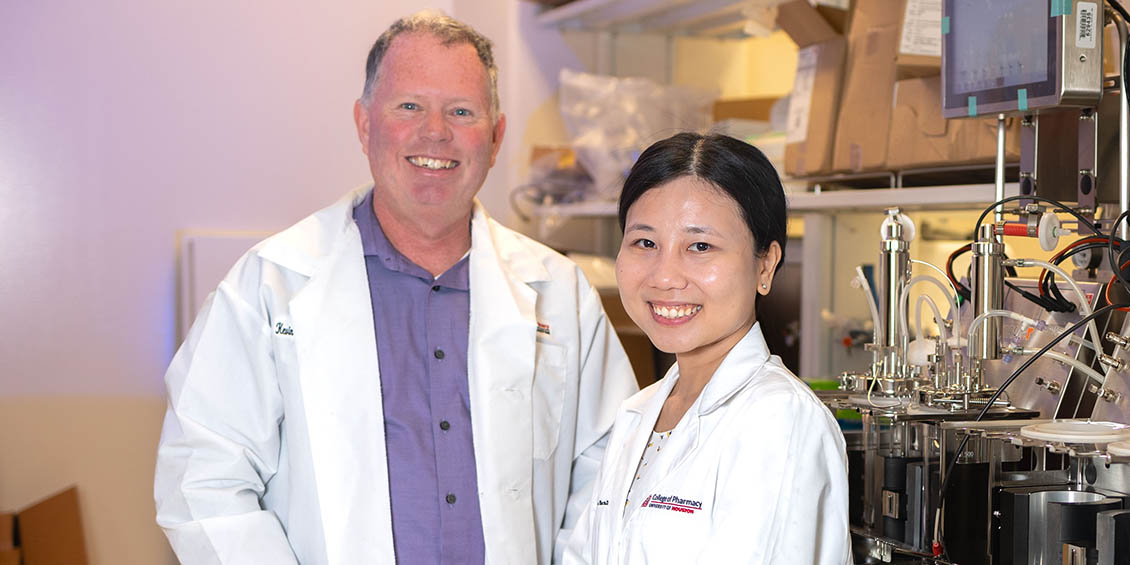Research News

Improving Antibiotic Use with Machine Learning
Pharm.D. Alumna, Ph.D. Student Le Awarded NLM Fellowship to Develop Resistance Prediction Tool for Life-threatening Bacterial Infection
September 18 — ThanhPhuong Le, Pharm.D. (’18), a University of Houston College of Pharmacy alumna and current Ph.D. in Pharmaceutical Sciences-Pharmacology Concentration student, was recently awarded a one-year, $76,727 postdoctoral fellowship in Biomedical Informatics and Data Science from the National Library of Medicine (NLM).
Falling under the NLM domain of translational bioinformatics, which utilizes applications of informatics principles and methods to support “bench to bedside to practice” translational research, Le’s research project focuses on the role of bacterial RNA polymerase in antimicrobial resistance and utilizes machine learning to identify resistance and virulent determinants.
Specifically, Le will be looking at anaerobic bacterium Clostridioides difficile (C. difficile, or C. diff) and the gut microbiome disease Clostridioides difficile infection (CDI). CDI is the most common health care-associated infection in the U.S., with approximately 500,000 cases per year, according to the U.S. Centers for Disease Control and Prevention. CDI is associated with severe gastrointestinal distress, including often recurrent diahhrea, cramping, fever, dehydration and other symptoms.
"I was initially interested in CDI because of its limited treatment options," Le said. "Clinical guidelines only recommend one antibiotic, fidaxomicin (FDX), as first-line therapy for most cases. The corresponding increase in FDX use has placed a tremendous selection pressure for the development of FDX resistance. Methods to rapidly predict and identify FDX resistance are needed."
Le will use existing C. diff genomic data and phenotypic assays to identify mutations in the key residues critical to FDX activity and utilize an adapted computational analysis pipeline to predict C. diff behaviors associated with FDX resistance. The computational analysis pipeline will combine sequence analysis with machine learning tools to achieve the goal of predicting phenotype (susceptibility to FDX) from genotype (mutations in C. diff) and address questions of whether genetic changes in key RNA polymerase genes can predict FDX resistance and whether these changes change C. diff's ability to cause disease.
"My research interest requires advanced bioinformatics skills and the use of computer algorithms to discover patterns and associations in massive biological datasets," Le said. "The courses included in this fellowship provide a foundation in biomedical informatics and data analysis that is necessary for me to become a competent researcher in this area."
Le’s fellowship program is under the mentorships of UHCOP’s Robert L. Boblitt Endowed Professor of Drug Discovery and Department of Pharmacy Practice and Translational Research Chair Kevin Garey, Pharm.D., M.S., FASHP, FIDSA, FCCP, and Rice University Associate Professor of Computer Science Todd Treangen, Ph.D.